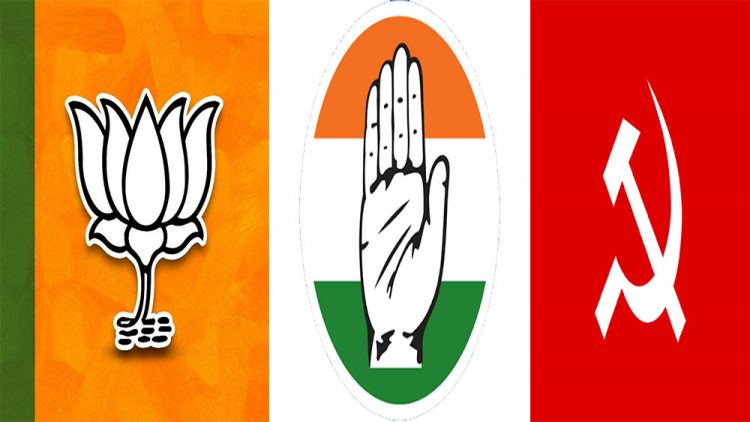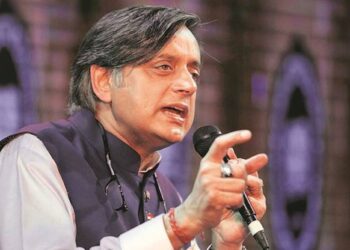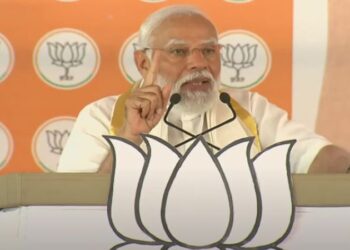For an outsider, elections in Kerala is just like what happens in any other state. Wrong. Even, the most battle hardened media veterans from up north get it wrong. Why?
For a start, it all begins with the religious mix that is so unique to Kerala. For a state where Hindus are just a notch above 50%, the role of the religious institutions among Muslims and Christians is the deciding factor. Kerala has mostly seen either LDF or UDF taking turns at ruling the state. While CPM is the lead player in LDF, it tags along its original cousin CPI and other motely parties
While the Panakkad family takes the final call in the selection of candidates of Indian Union Muslim League (IUML), a constituent of UDF, the Congress led front in Kerala. The last three assembly elections in Kerala, have seen the emergence of new parties who serve as the front of the more radical version of organizations like Popular Front of India which pitches SDPI as its political face. Even in the recently held local body elections, SDPI did well across geographies beyond their traditional bastion.
This has worried IUML, which is considered a moderate Muslim face and that has led the party to harden their stance when it came to CAA and Triple Talaq. For a state that has been recruiting ground for ISIS, the political stances depends on which side of the fence you are.
On the other hand, the Church does not hide its political ambitions, and they do not hide it. Over every other election, the numerous denominations of the Church, from Latin Catholics to the Orthodox and Jacobite factions have ensured that both UDF and LDF put up candidates who were recommended by the Church. The message to the faithful is cloaked in a language that makes it clear as to whom to vote for. But, even here there has been a shift of loyalties, from openly backing parties like Indian National Congress and Kerala Congress (Mani) to, hold your breath – BJP.
On the other hand, Hindus are not represented by a single entity and as has been seen often is divided on caste lines. The Nair Service Society (NSS) is supposedly staying away from tilting towards any front, but often recommends UDF. But as is often the case, Nairs to a large extent tend to vote for NDA, despite the position taken up by NSS. This is more so prominent since the incidents that shook up Sabarimala in 2018. Chief Minister Pinarayi Vijayan had then taken a strident position under the guise of having been compelled to follow the Supreme Court judgement, permitting entry of women into the abode of Lord Ayyappa. That move backfired badly for the LDF Govt, with BJP taking up a counter position and galvanizing the hitherto docile Hindu population. Finally, CPM bosses realised that BJP was walking with a huge voting segment and did a climb down, with Devasom Minister Kadakampally Surendran apologizing for what happened at Sabarimala. Why did he do it? That is the subject of another debate.
On the other hand SNDP which represents the Ezhava community has been more vocal about their political leaning-going, mostly with the LDF. But SNDP General Secretary Vellappally Natesan’s son Thushar Velapally decided that unlike his father’s decision, it was prudent to sail with BJP and NDA. Tushar even contested against Rahul Gandhi in the 2019 Lok Sabha elections from Waynad.
Then are non-political outfits like 20-20 which has done well in select areas Kizkhakkabalam and Chellanam. This experiment has succeed in a state like Kerala, which has often swung between political combinations. After having performed well, in terms of getting a good percentage of votes in the recently held locals polls in Kochi Municipal Corporation, V4People, another non-political outfit run by committed professionals has announced that it will contest in Kochi Thrikkara and Ernakulam assembly segments.
In Kerala, winning or losing in the early days was in single percentage point, and with the ascendancy of BJP in the political firmament, that factor is no longer relevant. In many A+ seats as winnable seats are called, BJP has increased its vote share to 18% in the last election. Though this does not translate into seats, the party did make its first toehold by winning Nemom, a suburb of Tiruvnananthapuram.
At the end of the day, politics is considered a profession in Kerala. Many of today’s leaders across parties have cut their teeth as Student leaders and then growing through ranks. Though Communism has diluted it initial heady days of rebelliousness, there is still an intellectual dogma that CPM and even CPI finds itself against. Elections are never dull in India, and in Kerala, each and every vote is fought for with aggression. Who will win? Your guess is as good as mine.












